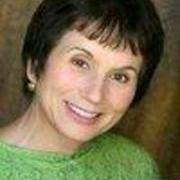Hundreds of people have asked me why someone develops an eating disorder. Of course many issues are involved, but from my exploration of this field over the years, I have concluded that there is one outstanding theme that runs through every person with an eating disorder whom I have encountered.
Early in their lives, people with eating disorders have experienced, on a sustained basis, relentless boundary invasion on every level.
When their physical, emotional, psychological, intellectual, sexual, and creative boundaries are consistently ignored and penetrated, people experience total boundary invasion. With no control and no way to end, protest, or, often, even acknowledge such invasions, these persons feel helplessness, despair, and a certainty that they are worthless to themselves or anyone else.
The consequences of such total invasion are vast. One consequence is an eating disorder. Having had so many boundaries disregarded, a person has no knowledge or skills in recognizing or honoring boundaries herself. She will eat or starve for emotional relief.
She may eat vast amounts of food for comfort value alone. She may deprive herself of food until her life is in danger. She has no internal regulator that tells her when she has reached her limit and experienced enough. Being oblivious to any boundaries means being oblivious to limits of any kind.
The compulsive overeater eats whenever and whatever she likes. She bases her choices on self-medication issues, not feelings of physical hunger.
The anorexic will not eat. There is no limit to her not eating. She will starve herself to death in search of relief from her emotional pain. She knows nothing of the experience of having enough. She couldn't say, "Enough," to an invader of her boundaries, and she can't say it to herself. The concept of enough has no meaning to her. She often feels that if she "disappeared," she might find some permanent relief.
I have heard countless anorexic young women talk ethereally, with a lost-in-a-beautiful-world-of-angels smile, of how wonderful it would be to become a vapor or a light dancing spirit in the clouds. Ah, such spiritual bliss, they imagine. In reality, it's the final self-protective act, to destroy their bodies and their lives completely. Then they can truly escape the complexities of being alive.
The bulimic will binge grotesque amounts of food. She will assault herself with more food than her body can tolerate.
The compulsive overeater will, at last, have to stop eating if only because of the pain in her distended stomach. Her body sets a final limit. The bulimic has no such limit. She experiences (in her mind) no consequences of the food assault on her body. When her body cannot bear more, she will vomit it all out. Then she will resume her binge. She may reach her body's limits many times. Each time she does, she can throw up again and continue.
Eventually she stops, because she is completely exhausted, or she is in danger of being discovered. "Enough" has no meaning to her. There are no limits and no consequences for her disregard of her boundaries.
Realistically, of course, there are plenty of consequences. Her behavior inflicts serious damage to her body. And each time she attacks herself with a binge-and-purge episode, she destroys more of her spirit, soul, self-esteem, sanity, health, and value to herself and others.
Each violation deepens her ritualistic behavior, and she becomes more entrenched in her disorder. The consequence is increasing anguish and despair. Yet the eating disorder is not the cause of that anguish and despair. The eating disorder exists to numb her from her already existing psychological agonies.
For a while, maybe a few years, the eating disorder successfully blocks her awareness of pain too difficult to bear. But eventually the protective device of the eating disorder becomes just another boundary invader, this time self-induced, that weakens and damages her even more.
What do I mean by a history of boundary violations? Blatant and extreme boundary violations involve sexual molestation, sexual abuse, and physical abuse. Much has been written about these areas now, especially in material exploring Post Traumatic Stress Disorder (PTSD) and Dissociative Identity Disorder (DID). Use your search engines to find some quality information posted on the Internet in these subject areas.
However, there are other kinds of boundary violations, and these are less dramatic, less discussed, more prevalent, and just as devastating to a persons psyche. When, in the name of caretaking, people in authority take over a young person's life, it constitutes boundary invasion.
When others deny her privacy, read her diary, borrow or take her things without permission, or use their ideas or goals or personalities to overwhelm her efforts in school or sports, that is a violation of her boundaries.
When others disregard or disdain her choices or deny her any control over her personal life, clothes, food, friends, and activities, they are invading her boundaries.
An invasion of boundaries also takes place when, in the name of caretaking, people give her no responsibilities of her own and attach no consequences to her actions. When the child or adolescent can have all the things she asks for without putting forth effort to earn such gifts, she learns nothing about personal effort, limits, consequences, or the meaning of enough. If she wants something, she gets it. That's all. If someone picks up her clothes, does her laundry, fixes her car, pays her bills, lends her money or things without expecting them returned, she experiences no boundaries and no limits.
If she doesn't have to keep her promises, if she doesn't reciprocate with caring actions for people who care for her, she learns nothing useful about herself in relationship to other people. The only thing she learns with certainty is that there are no limits to her behaviors or desires.
These boundary invasions are not loving acts, nor are they "spoiling" a child through overindulgence. Quite the contrary, they are acts of neglect. The child's taste, mind, capacity to learn, and ability to grow and function as an independent agent in the world remain unacknowledged.
When others, even well-meaning others, ignore her identity as a unique, developing, and competent individual and flood her with their personal agendas, she feels as if a steamroller had flattened out her psyche. She may learn to please, to manipulate, to compete, or to control, but she is unable to learn to be fully present in the world as her genuine self.
She doesn't learn that she has meaning and value. She doesn't learn that she can put that meaning and value within her to work to accomplish goals.
For example, if she breaks something, whether it is a lamp, a car, her word, or someone's heart, it is possible and healthier to give her the responsibility for making necessary repairs using her own resources and her own creativity. In such a process, she learns what effort means. She learns what responsibility and consequences for actions mean. She learns reasonable limits and reasonable expectations. She develops resources to make healthy and caring decisions in the future.
Without such lessons, she learns are the tricks involved in adapting quickly to the expectations of others or being manipulative to get what she wants. These are poor and insubstantial tools to rely on when building an adult life.
Somewhere inside, over time, she may gradually realize this. But without a sense of boundaries, she will only become bewildered and anxious. She will accelerate her practice of using her eating disorder as a way to numb her feelings of anxiety. She will use her manipulating skills to get what she wants from whomever she can exploit.
As time passes, fewer people in her life will allow themselves to be manipulated. The quality of her circle of associates will decline as she seeks people she can control with her inadequate methods of functioning in the world. She will find herself in bad company.
This becomes all the more reason to rely on eating disorder behaviors for comfort. The people around her are less reliable all the time. And finally, they tolerate her presence only because they can manipulate her.
She arrives at the total-victim position. Her manipulative skills backfire. People exist in this world who are better at manipulating and using than she. She has found them. She becomes their target and then their prey. Her dependence upon her eating disorder becomes her most valuable and trustworthy relationship.
Early in her development, she learned through massive boundary invasions (which perhaps seemed ordinary and unimportant at the time) that she was helpless to assert herself. She learned that she had no private or sacred space to cherish and respect. She could not acknowledge, even to herself, that she was being thwarted, invaded, controlled, manipulated, and forced to deny large aspects of her natural self. She had no recourse except to comply.
To succeed at being unaware of her natural tastes, curiosities, and inclinations and her pain in restraining her natural tendencies, she developed an eating disorder. Now that she's older and her manipulation skills are failing her, she only has her eating disorder to rely on. This may be the most crucial time in this person's life.
If her pain and despair are terrible enough and she is certain she cannot bear this way of living anymore, she still has choices. She can continue to rely on the eating disorder and by so doing take the path to self-destruction. Or she can reach out and get help.
This is a tough position for her. She's never known what enough was. Yet to choose to get help, she has to recognize that she has had enough pain. She's never known what a limit is. Yet she has to recognize that she has reached her limit and must choose between death and life. She has only known about pretense and manipulation. Yet she has to be honest to reach out for genuine help.
She feels massive anguish and pain before she stretches beyond her life pattern into what might bring her healing and recovery. She's reaching for something she can't imagine. It's difficult for a person with an eating disorder to decide to get help. She would have to allow herself to trust someone with knowledge of her real personhood.
She doesn't yet know that people who do respect and honor boundaries actually exist in this world. She doesn't yet know that there are people who can and will honor and cherish her most private and sacred inner spaces. She doesn't yet know that someday the trustworthy, respectful, steadfast, and competent caretaker she needs so badly can be herself.
Her first move toward recovery requires all the courage she can muster. Her recovery begins when with fear or rage, she rallies her courage to reach out for help.
Difficult, yes. But what she doesn't know yet is that she has been courageous all her life. She makes a grand discovery when she learns that she can apply her strength and courage to her own health. She can use her gifts to, at long last, be free of her eating disorder, be her genuine self in the world.
Professional Resources for Finding Help
Academy for Eating Disorders (AED)
American Anorexia and Bulimia Association (AABA)
Anorexia Nervosa and Related Disorders (ANRED)
Edreferral.com
International Association of Eating Disorders Professionals (IAEDP)
Joanna Poppink's Eating Disorders Resource List In-Patient Treatment Programs
National Eating Disorders Association (NEDA)
Joanna Poppink, Los Angeles psychotherapist, licensed since 1980 (MFT #15563), is deeply committed to bringing recovery to people suffering from eating disorders.
Her specialized psychotherapy practice is designed to allow clients to progress through anxiety situations to ongoing recovery from bulimia, compulsive eating, anorexia and binge eating. Her primary goal is to provide people with a way to achieve thorough and long lasting healing.
Eating Disorder Recovery book in progress through Conari Press
10573 West Pico Blvd. #20
Los Angeles, CA 90064
http://www.eatingdisorderrecovery.com
[email protected]





Add a Comment206 Comments
To the Daughter of the 70 year old bulimic mother and difficult personality grandmother,
I do feel for you. Please believe that. I also have lived with family members with eating disorders. I also had a strong willed and opinionated grandmother who, as much as I loved and admired her in certain respects, I also found her difficult (and hard for my mother as well). I can relate to much in your post.
I obviously don't know your relatives and am not in a position to make judgments. But let me re-frame this a bit if I might.
Often times I think it can appear that a family may be trying to control a child (an adult one even) or overly involved with a child. It could be easy to assume "boundary violations"(e.g., over-control, over-involvement, over-protection, high expression of emotions or maybe even difficulty expressing one's feelings) caused an individual to develop an eating disorder. But, when a child suffers from an eating disorder, I would suggest that the opposite could also be true. It's the old chicken and egg dilemma. Which came first? Could it be that your loved one develop symptoms of an eating disorder which then brought out strong reactions from her family? Especially long ago at a time when these illnesses were poorly understood and barely treated?
Perhaps your Grandmother's reaction was born out of frustration and anger at her inability to help her daughter or stop the behavior--especially if she viewed the behavior as a 'choice' rather than an illness. Perhaps her own hurt, worry, confusion and anger bubbled over at times. Eating disorders are difficult for everyone, all around. There was (and often still is) shame and guilt associated with eating disorders for both sufferers and families.
I can't know the dynamics in your family. However, it may be that there is more than one angle, one way of looking at it.
anne
June 4, 2009 - 8:28pmThis Comment
Family-based therapy (Maudsley) is also used with adolescents suffering from bulimia, not just anorexia nervosa. And, while there is still much to learn about how best to treat chronic eating disorders of long duration in older patients, it is likely that many of those eating disorders started in adolescence or young adulthood. How wonderful it would have been if those behaviors could have been interrupted at an early stage of the illness, instead of becoming chronic. All evidence points to early intervention as leading to better outcomes.
While research on the Maudsley method has been studied in adolescents, I know of people who have successfully used it with older adult children. While perhaps not the norm at this time, it is not impossible.
For bulimia in older patients, the evidenced-based treatment of choice is Cognitive Behavioral therapy and antidepressant medications. I am personally less familiar with this as this was not my family's issue. However, I have done a great deal of reading and research on ED's in general.
Bob, I appreciate your willingness to maintain an open mind an acknowledge that people with ED's come from all sorts of backgrounds. What I found so upsetting in Joanna's column was the 'this is the way it is' for eating disordered patients, as though they were all lumped into one.
Please recall the schizophrenogenic mother of schizophrenia or the refrigerator mothers of autism. No one believes that anymore. Why do eating disorders, a mental illness, deserve the special distinction of being blamed on parenting, on the media or on society?
Dr. Thomas Insel says, and I quote "...Anorexia nervosa, among the most serious of mental disorders, can be deadly for young women who get caught up in a malignant cycle of weight loss and compulsive behaviors. The mortality rate for those with anorexia nervosa is estimated at 5% per decade. Research tells us that anorexia nervosa is a brain disease with severe metabolic effects on the entire body. While the symptoms are behavioral, this illness has a biological core, with genetic components, changes in brain activity, and neural pathways currently under study. Most women with anorexia nervosa recover, usually following intensive psychological and medical care."
He also states:
"How badly we have done by parents by separating individuals from families,
and blaming families for the problem...
We need to ask for a day of atonement for past care,
and we need to bring families into the picture."
Dr. Thomas Insel Director of the US National Institute of Mental Health 2007
There are obviously differing views in the ED treatment world. This is a big part of the problem for families...and ultimately sufferers.
June 4, 2009 - 6:49pmThis Comment
I'd just like to say that I think this is a very powerful and interesting thread. Thanks to all of the participants.
June 4, 2009 - 12:34pmThis Comment
Dear Daughter of 70 year old mother with chronic bulimia,
Thank you for writing. Over twenty years ago a woman in her mid twenties
asked me if she could find a 12-step program for adult children of parents who had eating disorders, bulimia in particular.
My heart broke at the magnitude of her question. The answer, of course, was "No." At that time in our society her existence was unknown or unacknowledged or both. All people with eating disorders were considered to be female, white and in their very early teens.
An adult child of a bulimic woman, if recognized, would destroy that illusion. The bulimic woman would have to be at least of child bearing age plus the age of her adult child. That would put the bulimic person in the neighborhood of forty. This was inconceivable at the time, except for the people who were living with the illness.
I still receive mail from women in their 50's and 60's who share for the first time that they continue to suffer from an eating disorder.
The Maudsley Method philosophy has a straightline focus on the adolescent living at home and who is severely deprived nutritionally.
The full range of eating disorder healing experiences encompass every aspect of a person's life and is quite profound for the individual and for the people in his or her life if they can remain in relationship. Working with adults who have eating disorders is very different from working with children.
And working with adult children of mothers (or fathers) with a history of eating disorders is still, in my opinion, a neglected area in mental health.
The good news is that the principles in Al-Anon (the 12-step program) for the most part, apply to adult children of a person with an eating disorder. And today, many mental health clinicians, unfortunately, have rich experience in working with adults whose parents suffer or have ever suffered from addiction. Here too, overlap exists, so
the adult child of a bulimic person can be understood and get effective help.
A core principle in the healing work revolves around boundaries, i.e. recognizing boundaries, dismantling unhealthy boundaries, constructing and honoring healthy boundaries.
Thank you again, for writing. I'm glad you found my article and were moved to share a bit of your story. Please feel free to write again.
warm regards,
Joanna
June 4, 2009 - 12:13pmThis Comment
There are all kinds of families in the world. No one deserves to live in a domineering, hurtful or hostile environment. However, not everyone that lives in this kind of environment develops an eating disorder. A very small percentage of the entire population, for instance, develops anorexia. If simply living in a difficult environment caused an eating disorder, then the numbers would be greater than they are.
Likewise, there are many out there that come from perfectly fine families with life stressors that are not outside the normal range. Yet they go on to develop an eating problem.
Unless you have the genetics for it in the first place, an eating disorder is highly unlikely to develop. Research has shown that, for anorexics, they are very unlikely to come from homes that are abusive. They come from all kinds of home and all kinds of backgrounds.
The most common trigger for entrance into an eating disorder in the genetically susceptible?
Going on a diet. Losing weight is often initially met with positive comments from others. For the predisposed, it can have a calming effect and set into motion a cascade of biochemically based brain changes.
In my opinion, blaming and searching for causes is destructive. It does not allow the family to focus together in an attempt to fight the illness. It delves into possible causes that can distract from the real and urgent need for complete, full nutrition. It can potentially legitimize distorted thinking on the part of ill loved ones if the therapist talks only with the person suffering an ED and does not hear the family's perspective. Once a person is refed, then is the time to address anxieties, developmental issues, etc. if needed.
Family-Based therapy (aka the Maudsley Method) is research based and has the highest evidence for effectiveness in adolescents. It puts parents in charge. It does not counsel young sufferers until their brain is rehealed enough to make use of it. It does not blame families. It sees families as the best resource.
Who would you go to if your child was ill?
anne
June 4, 2009 - 10:27amThis Comment
As the daughter of a chronic bulimic (my mother is now 70 years old), I feel comfortable saying that my grandmother had everything to do with my mother developing an eating disorder. She was domineering, hurtful and created an environment hostile to expression of feelings. (I should mention that I adored my grandmother but I saw how she interacted with my mother). As a result, my mother turned to food and developed a life-long problem that remains unresolved. I am on the side of holding parents responsible if they are contributors to a child developing an eating disorder. Growing up the daughter of a bulimic mother profoundly affected me and my ability to experience feelings without using food to mediate those feelings. Joanna's article resonated for me and my experience.
June 4, 2009 - 6:29amThis Comment
This is exactly why evidenced-based research is essential. Children with a variety of ailments come from a variety of families. Blanket statements are incredibly harmful about any illness, ED's included and perhaps especially. And, more importantly, it flies in the face of current research.
When you are dealing with an illness of denial and distortion, you must-as a therapist-take this into account. I have SO much more to say on this, but am off to work.
My main point this morning is that there are real people and real families out here struggling with this illness. It is disheartening to be pre-judged as 'violators' and 'possible abusers' the minute we walk in the door (and we have been historically and still too often are).
I find it interesting that you say private residential places do not blame parents. That was not my experience at all. That was the place I felt it the most. We were not even allowed to see my 14 year old daughter for 5 weeks--and there was absolutely no good reason for this. It was inhumane. Had I more courage--or not so desperate to get her refed at the time--I would have pulled her out of there in a heartbeat.
anne
June 4, 2009 - 4:40amThis Comment
Oops, double post.
June 3, 2009 - 9:18pmThis Comment
As one with years of contact with people with EDs, and a fair measure of experience with their parents as well, I find it difficult and perhaps unwise to stereotype the sufferer’s background. While we all are rightfully looking for answers as to the causality of EDs, at this point in time it seems wisest to look to the broadest range of possibility.
Having said that, I believe that many people with EDs have suffered exactly the same sets of circumstances that Joanna sets forth. Abuse and boundary violations play a huge role in the development of EDs for all too many people.
Yet how are we to explain the fact that given the same set of circumstances, some people will develop an ED while others will not ? The explanation would seem to indicate that temperament plays a larger role than those who seek to narrow things down may currently acknowledge, and may exert such a strong influence that children may develop EDs under "good enough" parenting as well.
Currently there seems to be many different camps when it comes to explaining ED etiology. The recent movement to pooh-pooh and discount the early findings of Hilde Bruch is one example of this, even in the face of some suffers who come from exactly the backgrounds Bruch described.
Expensive private residential treatment programs seem particularly prone to the currently popular “The Parents are never to blame" position. Yet when it is parents who are asked pay the sort of fees such places often demand, such institutional positions can all too easily be seen as self-serving rather than evidence-based. All one has to do is listen to the horror stories from the childhoods of some sufferers to understand that stating this position is professionally irresponsible and without basis in fact.
At the same time, many people with EDs appear to come from authentically loving and conscientious homes. The range of backgrounds for people with EDs seems a wide one.
My sense is that every single one of the various etiological stances will find validity in certain individual cases, and that when it comes to producing an all-encompassing theory of ED development one is wise to remain open-minded, and not cleave too closely to any particular stance.
June 3, 2009 - 9:11pmThis Comment
Read the Minnesota Starvation Study. It is a real eye opener as to the effects of starvation on a group of normal young men. Sound like an eating disorder? You bet!
anne
http://www.possibility.com/wiki/index.php?title=EffectsOfSemiStarvation
June 3, 2009 - 4:38pmThis Comment